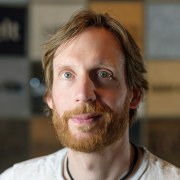Researchers and creative practitioners focusing on maker practices are increasingly becoming sensitive to the effectiveness of the workshop format in collaborative practices, since most of learning is not the result of instruction but rather of unhampered participation in meaningful settings. Moreover, the range of goals and potentials behind a workshop, from the perspective of its initiator, spans from actual educational purposes to products / tools / ideas and settings validation.
"Learn to teach, teach to learn": this is a fundamental motto for educators, artists, scientists and makers dealing with innovation and creativity. Indeed the production of new ideas, formats and items requires practitioners to get involved in a never-ending learning and feedback process within an environment that provides continuous validation.
Using MakerSpaces in science museums as a case study, we will draft an arising scenario in which a new open educational system comes as a by-product of a bottom-up prototypes-to-product development process of lean startup, based on informal learning, maker culture, STEAM and critical making. And vice versa.





